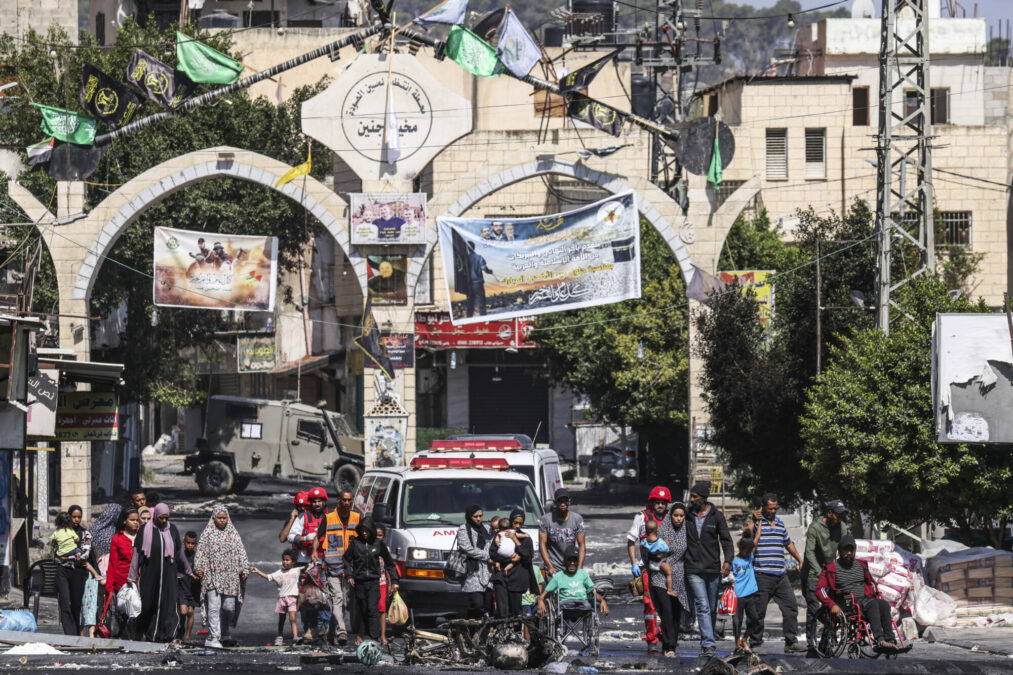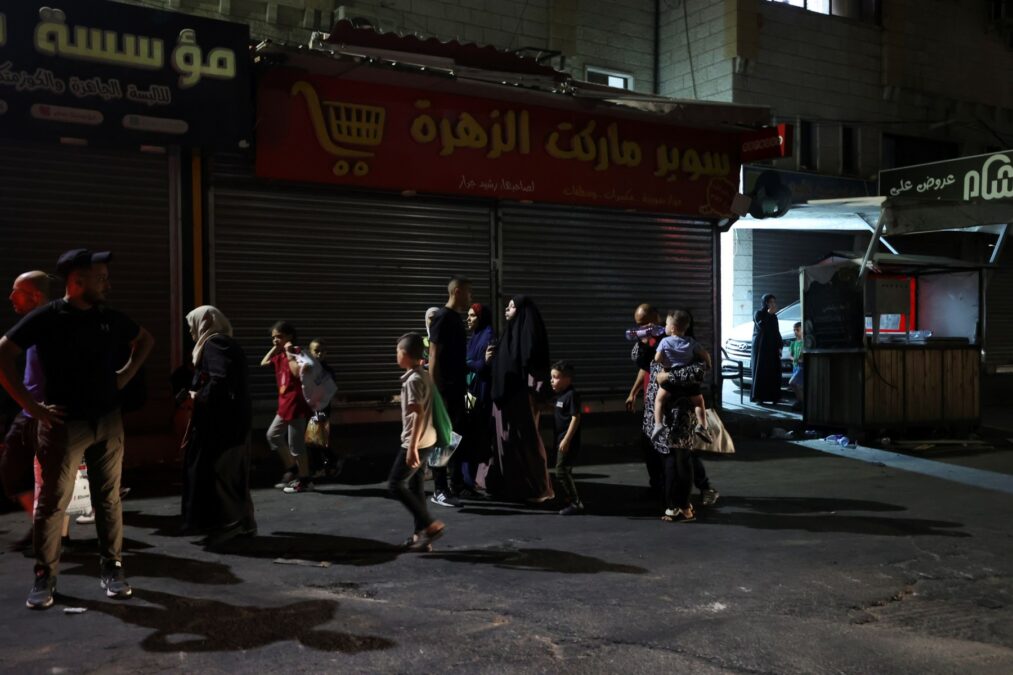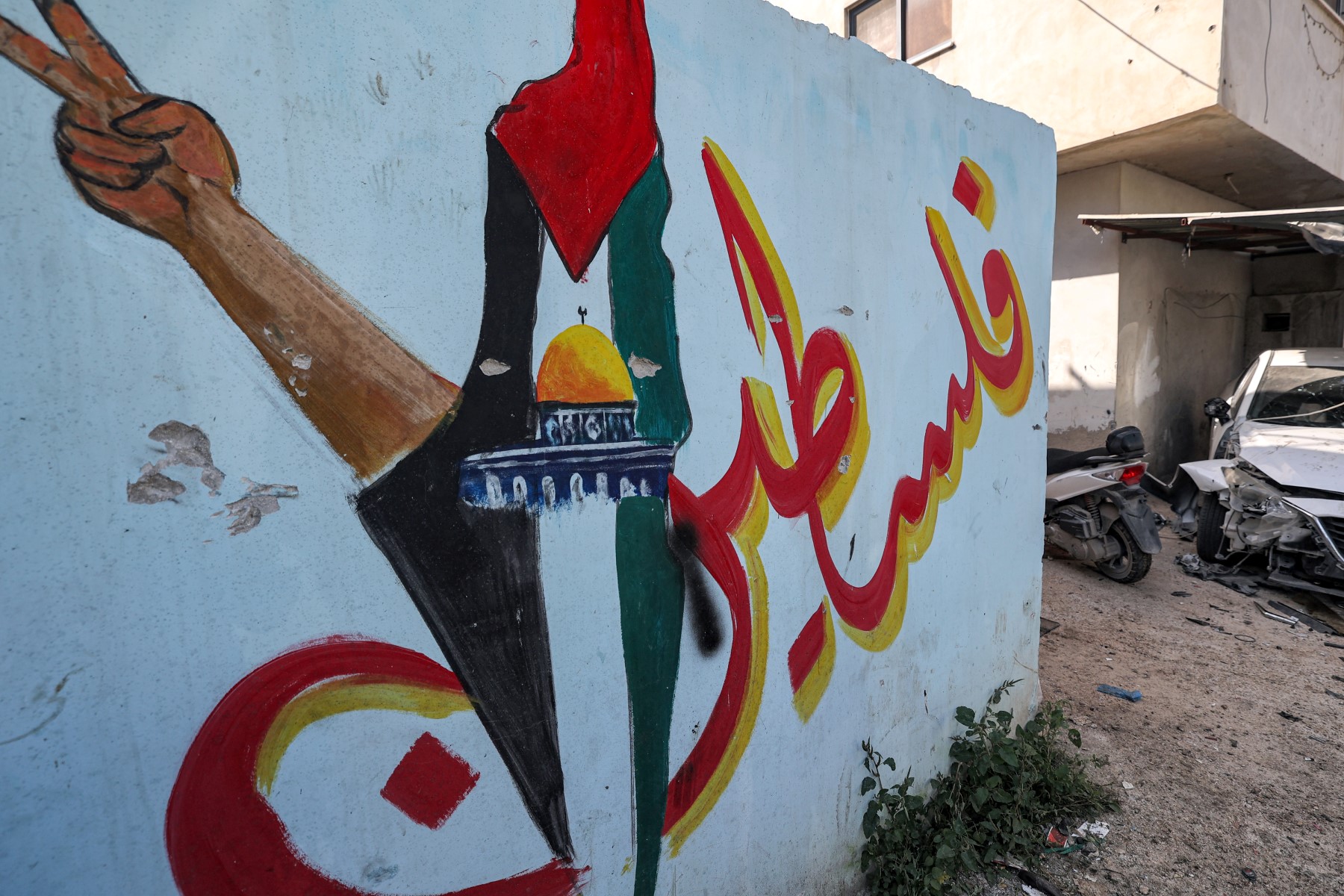Jerusalem – The current wave of intense Israeli settler violence in the occupied West Bank is dealing a body blow to Palestinian businesses, a leading economist told TRENDS in an interview.
“The biggest impact is on internal trade,” said Rabeh Morrar, research director of MAS, the Palestine Economic Policy Research Institute in Ramallah.
He added that Palestinians are afraid to travel on the roads of the northern West Bank out of fear of settler attacks and that the Israeli military has established additional checkpoints, further reducing the movement of people and goods.
Morrar added that the unrest comes around Eid-al-Adha (Festival of the Sacrifice), when large numbers of Arab citizens of Israel cross into the northern West Bank for holiday shopping.
“The economy in the northern West Bank is mainly based on these people. Most are not coming now,” Morrar said.

Last Tuesday, after two Palestinian gunmen killed four Israeli settlers at a restaurant and gas station in the Eli settlement, north of the Palestinian administrative centre in Ramallah, a wave of burnings of Palestinian homes, cars, and fields broke out across the northern part of the territory coveted by the most right-wing government in Israeli history.
Its intensity and unprecedented scope have evoked condemnations of Israel from the international community, including Arab countries, and allegations by human rights groups that the Israel Defence Force is doing little to stop the settlers from harming Palestinians and their property. The army denies this, while Israeli President Isaac Herzog condemned the settler attacks during a phone call Tuesday with Palestinian Authority President Mahmoud Abbas.
Attack on Morrar
Morrar, the economist, got a personal taste of the violence last Wednesday on the same day the hundreds of settlers, some of them armed, assaulted the town of Turmus Ayya near Eli in a revenge rampage. Some 30 houses were torched and forty cars burned, according to Palestinian officials, with fields also being set on fire. One man was shot dead in disputed circumstances by Israel police and another ten Palestinians wounded, according to Palestinian officials.
“It was sudden, they attacked my car,” he recalled. “The only thing to do was to drive in the street because I didn’t want them to stop me and take my kids or beat them and my wife.”
Morrar was driving with his wife and three children near Turmus Ayya towards Nablus after finishing his day’s work at MAS. At an intersection he found himself surrounded by 20-30 settlers.
“They attacked me with stones and broke the front window and right window. My wife’s two arms were seriously damaged,” he added.
The ages of Morrar’s children are 3, 7, and 9.
“One of the stones hit my kid who was in the front chair and his leg was injured, the other two kids were hit in their faces by glass. I was on the left side and escaped the attack. I was in a situation where I had to keep control of the car,” he said.
Morrar has refrained from going back to Ramallah since the attack.
‘Deserted’ Nablus
The economist said he had visited the center of Nablus on Sunday and found it deserted. “There were no people there. Last year there were thousands. So it was a very sad day for people.”
Abdul-Raouf Hawash, president of the Nablus Businessmen Forum, painted a no less bleak picture in remarks to TRENDS.

According to him, clothing stores, restaurants, tourism establishments and hotels are experiencing a sixty percent drop in business compared to the pre-holiday period last year.
“The people of 1948 don’t come to Nablus,” he said, referring to Arab citizens of Israel. “And the people from the villages don’t come.”
A resident of a village south of Nablus, who didn’t want to be named, told TRENDS that the situation is awful.
“People are buying less and only purchasing essentials,” he said. “The settlers are burning fields and people lose their income from that. Many people are not leaving their houses to go to work because they are afraid they will be harmed. People don’t want to spend money.”
“The moment people hear there are settlers in the area, the children cry,” he added.
The surge of settler attacks increases the challenges of an already weak and vulnerable economy that is constantly crippled by Israeli strictures on movement, as was noted in a World Bank report in May.
Moreover, Israel generally denies Palestinians permission to build in the part of the West Bank designated under self rule agreements as area C, which makes up most of the West Bank and houses Israel’s ever expanding settlements. It is not exactly a welcoming climate for foreign investors unless they are interested more in showing solidarity with the Palestinians than turning a profit.
As the World Bank report put it: “The restrictions in the West Bank and the near blockade imposed on Gaza remain among the most important obstacles to stability, growth and private sector development in the Palestinian territories. If not eased or lifted, the Palestinian economy is expected to continue operating well below its potential”
Matters seem poised to get much worse than better. The current spiral of violence began in Spring 2022, when a string of Palestinian terrorist attacks struck Tel Aviv and other areas, and Israel responded with “Operation Break the Wave”, nightly raids in Palestinian areas that resulted in heavy Palestinian casualties but did not put an end to Palestinian attacks, most of them in the West Bank.
Now, the settler violence is expected to fuel Palestinian revenge attacks which, analysts predict, could spark a major Israeli military operation in the West Bank.
Israeli Minister of Public Security, Itamar Ben-Gvir, head of the far right Jewish Power party is echoing settler demands for such an operation and calls for it to include the killing of “thousands of terrorists”








